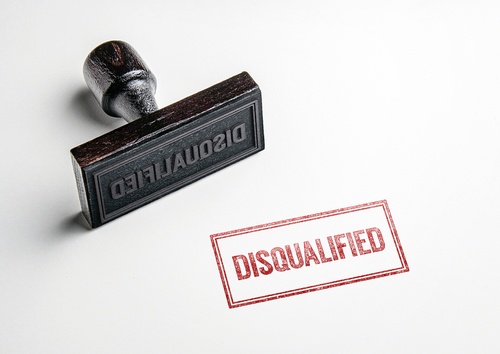
Many of our clients say that the thing they love most about self-directing their IRA is that they have so much freedom to choose what they invest in. Whether it’s real estate related assets, investing in private companies, or making loans, the freedom, flexibility, and extensive options are huge benefits.
Even with so much freedom and so many options though, there are some limitations. Self-directed IRAs are governed by a set of rules that investors must be aware of and follow. There are some transactions that are not allowed with self-directed IRAs, and there are some disqualified persons self-directed IRAs are not allowed to do business with. We will focus on these disqualified persons in this blog post.
Self-directed IRA disqualified persons
First, why do these disqualified transactions and persons exist? Some transactions violate the basic intent of your self-directed IRA. It’s important to remember that your retirement plan is intended to benefit you when you retire and not before. Transactions that can be interpreted as providing immediate financial gain to the account holder or other disqualified persons are not allowed.
So who is a disqualified person? When it comes to determining prohibited transactions through your self-directed IRA, the following are considered disqualified persons:
- You and your spouse
- Your employer
- Your lineal ascendants and descendants, as well as their spouses (children, parents, etc.)
- Any person providing plan-related services (custodians, advisors, fiduciaries, administrators, etc.)
- Any entity (business, corporation, partnership, etc.) of which you are at least 50% owner, whether directly or indirectly
- Any entity where any disqualified person has undue influence over the decision of that entity
Your IRA may not buy an investment from or sell an investment to a disqualified person as defined by Internal Revenue Code Section 4975 Section 11 on Prohibited Transactions (4.72.11.3.1 Disqualified Person). To do so is known as “self dealing” and could lead to significant tax penalties.
Determining who is a disqualified person and who isn’t can sometimes be tricky, but these examples of disqualified persons may help:
- If you hire your son to paint a real estate rental property owned by your self-directed IRA, your son is a disqualified person.
- If your own company is a contractor and you hire someone on staff to work on your property, that employee of the company is disqualified.
- If you rent a property owned by your self-directed IRA to your parents, your parents are disqualified.
While the rules about self-directed IRA disqualified persons and prohibited transactions are important, these are the short lists. The lists of things that you can do with your self-directed IRA and who you can work with are much longer.
If you are interested in having this freedom to choose your retirement investments, please let us know, and we will be happy to get you set up with a self-directed IRA.
Learn more about the basics of self-directed IRAs from IRA Innovations in Birmingham, AL.
IRA Innovations provides self-directed retirement account administration and education in Birmingham, AL, Tuscaloosa, AL, and Nashville, TN. As the experts when it comes to “alternative” investments including private equities, they can provide the necessary tools and information to get started with a self-directed IRA.



